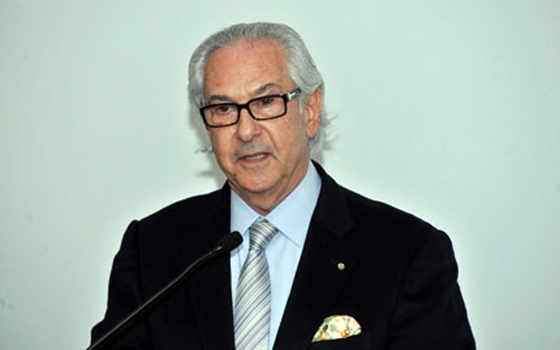The Lebanese Italian Business Council LEBITALIA was established in July 2013 based on an agreement signed between the Chamber of Commerce, Industry and Agriculture in Beirut and Mount Lebanon and the Chamber of Commerce, Industry, Agriculture and Crafts in Milan.
LEBITALIA’s main objectives are mainly to strengthen trade partnerships between Lebanon and Italy, develop the exchange of goods and services between the two countries, and work towards establishing sustainable relations between both countries in economic, industrial and trade fields.
ifpinfo had the following interview with LEBITALIA’s first president Mr. Raphael Debbane.
1. Recently you have been elected the President of the Lebanese Italian Business Council, LEBITALIA, what are the main objectives of this council?
LEBITALIA is a non-governmental and non-profit organization that works in developing and expanding trade and business relations between the Lebanese and Italian business communities.
In order to establish and develop trade relations with other countries and to help the Lebanese private sector to increase its sales and discover new markets, the Chamber of Commerce, Industry & Agriculture of Beirut & Mount Lebanon has taken the initiative in creating as many business councils as possible especially targeting countries that have active business relations with Lebanon.
Within this objective, there are already 20 active business councils that represent Lebanon and the corresponding countries.
Even though Lebanon has highly active economic and trade relations with Italy and while Italy is Lebanon’s third biggest trade partner, we didn’t have a business council to foster the bi-lateral relations between the two countries. So, the formation of LEBITALIA or the Lebanese Italian Business Council became imminent.
Actually, the Chamber of Commerce, Industry & Agriculture of Beirut & Mount Lebanon and the Italian Embassy in Lebanon joined forces in support of this initiative.
In this respect, a Memorandum of Understanding (MOU) was signed between the Lebanese Chamber of Commerce and the Chamber of Commerce, Industry, Agriculture and Crafts in Milan back in 2013 but it was materialized only couple of months ago.
2. What can you say about the council’s organigram and membership?
Once created, the Council focused its initial efforts on developing and adopting the bylaws of the council. LEBITALIA has a very well defined bylaws. Accordingly, we have the General Assembly that gathers all members (currently 32). This assembly elects the Board of Directors. The Lebanese side elects its 10 members and the Italian side its 10. The current Lebanese Board of Directors is chaired by me, Mr. Abdul Wadoud Nsouli is the Vice-President, Mr. Albert Aoun is the Secretary General and Mr. Nicolas Boukather, Treasurer.
We have plans to increase the number of the Board to 15 to absorb the many entrepreneurs who are eager to have active role in the Council and serve the Lebanese business interests.
Regarding the membership, currently we have only 32 members but this number is very low compared to the number we’re targeting as a Council. We’re receiving new membership requests almost every day.
According to our bylaws, a company may become a LEBITALY member if it has registered at the Chamber of Commerce and has a recognized business activity as shareholding company SAL (société anonyme Libanaise or Lebanese public limited company). Yet, transparency is needed regarding the owners and the management team. Based on the provided information, the board can decide if the applicant is an eligible member or not.
3. Relations between Lebanon and Italy are growing more and more, what can you say about the trade balance between the two countries?
Lebanon has a relatively small economy based mainly on imports. Like the trade with most developed countries, the balance between Lebanon and Italy is in the latter’s favor. To increase the Lebanese trade presence in Italy, the council encourages Lebanese industrialists and agricultural producers to have presence in Italy through participating in trade fairs. By doing so, they can attract buyers for Lebanese products and create new markets. Moreover, Lebanese industrialists are working on improving the quality of Lebanese products according to EU standards. This is a very positive step towards conquering new markets and increasing our sales in Europe.
4. To conclude, Italy is one of the biggest participants of Project Lebanon exhibition series, which will celebrate its 20th edition between 2 and 5 June 2015, what is your opinion of this exhibition in terms of LEBITALIA objectives?
IFP Group organizes very impressive and successful fairs like the Project Lebanon. As such, so many Italian companies are coming to participate in this show.
This year Project Lebanon coincide with the formation of LEBITALIA. So, taking advantage of this event, we’ve decided promoting the Council, explaining its objectives and broadening its membership base. IFP is kindly providing a stand for this purpose.
During Project Lebanon 2015, we will introduce LEBITALIA as an active body that promotes trade partnerships between Lebanon and Italy, and works towards the establishment of harmonious relations in the economic, industrial and trade sectors between the two countries.
ifpinfo
28 May
























































